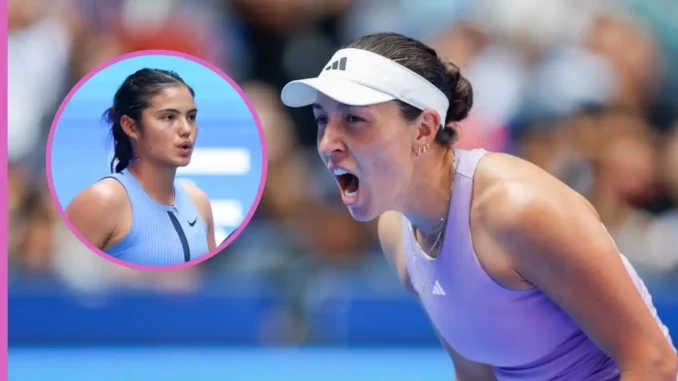
In the oppressive heat of central China, where stifling humidity and relentless sun turn the Wuhan Open into a grueling ordeal, the 2025 WTA 1000 event has become a stark reminder of the dangers of playing tennis in extreme conditions. This week’s tournament, nearing its conclusion, has been marred not by spectacular rallies but by a string of retirements and medical crises that have left players struggling to breathe. At the heart of the controversy is Emma Raducanu’s abrupt first-round withdrawal against Ann Li on Tuesday, sparking urgent discussions about player safety, tournament scheduling, and the sport’s preparedness for climate-driven challenges.
At the Optics Valley International Tennis Centre, conditions were punishing. With temperatures nearing 35°C (95°F) and 67% humidity, the heat index exceeded 40°C (104°F), transforming the courts into an endurance test. Raducanu, the 22-year-old former US Open champion ranked No. 30, began brightly, breaking Li’s serve early. But her momentum faded fast. Li, ranked No. 46, stormed back to win the first set 6-1, as Raducanu faltered, winning just seven points after her initial surge. In the second set, down 4-1 after a grueling service game with four double faults, Raducanu collapsed into her chair, pale and breathless. Medical staff intervened, checking her vitals during a tense timeout. Visibly drained, she retired, shaking hands with Li and the umpire. “I hope Emma recovers quickly—she wasn’t looking good,” Li said post-match, her empathy cutting through the competition. Raducanu later shared her frustration: “Retiring like that feels awful. The heat here is brutal; you can’t fully prepare for it.” Her words echoed the tournament’s chaos, with outdoor play halted on Monday due to unbearable conditions.
Raducanu wasn’t alone. Jelena Ostapenko, the 2017 French Open champion, suffered heatstroke in her match against Xiyu Wang, collapsing and retiring after medical intervention. “My body just gave out,” she posted on Instagram, her words resonating with thousands of supporters. The turmoil extended beyond Wuhan: at the Shanghai Masters, Novak Djokovic vomited on court, labeling the conditions “brutal,” while Aryna Sabalenka and Iga Świątek voiced struggles with the “searing” heat, Raducanu having already flagged Wuhan’s 34°C forecast on Threads.
Jessica Pegula, the No. 6-ranked American, emerged as a voice of reason amid the crisis. After a draining three-set win over Hailey Baptiste, the 27-year-old addressed the WTA’s heat protocols candidly. “We can’t keep ignoring this,” she said in her press conference, sweat-soaked but resolute. “Emma’s a fighter, but even she couldn’t push through. The tour isn’t doing enough to protect players.” Pegula, no stranger to grueling conditions from US Open summers and Florida training, called for stronger measures—more suspensions, indoor options, and data-driven safety thresholds. Her stance, backed by peers like Świątek, who advocated for “extreme measures” like Shanghai’s indoor shift, highlights a growing divide in tennis. Pegula balances professionalism—“You grind because it’s the job”—with empathy, shaped by her own challenges, including a 2023 family-related hiatus.
For Raducanu, the Wuhan exit caps a frustrating Asian swing—Seoul, Beijing, and now this curtailed stop—jeopardizing her top-32 ranking and Australian Open seeding. A potential third-round clash with Pegula, who bested her in a thrilling Beijing tiebreak, is now a missed opportunity. As Raducanu eyes Ningbo next week, her health hangs in the balance. For the WTA, the stakes are existential. With climate change intensifying heatwaves, Pegula’s call for sustainability rings urgent: “It’s not about weakness—it’s about keeping players safe.” Wuhan’s crisis is a turning point, demanding reforms to protect tennis’s future. As the tournament closes, the focus shifts from winners to survival, with hopes for Raducanu’s recovery and cooler days ahead.
Leave a Reply